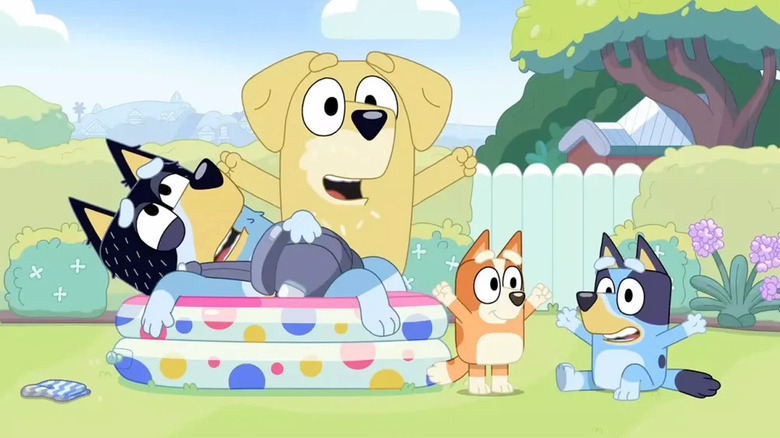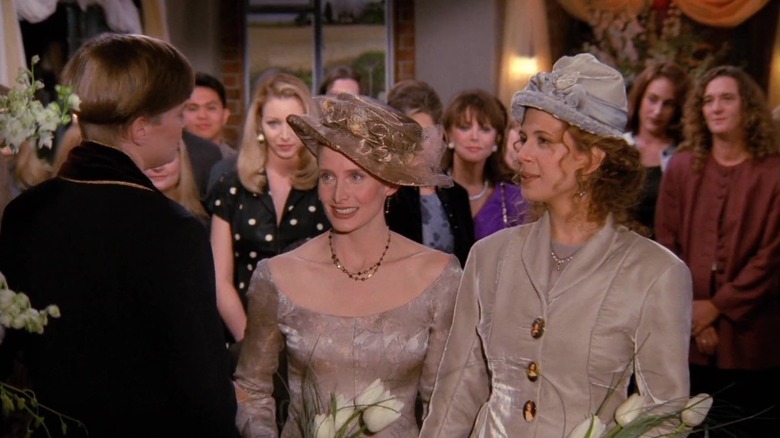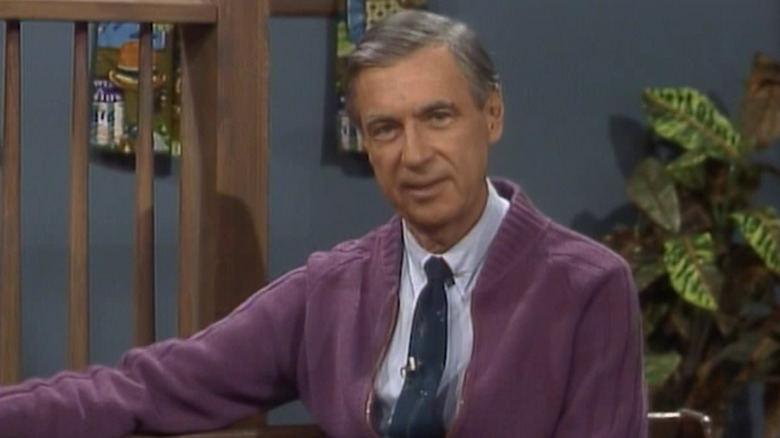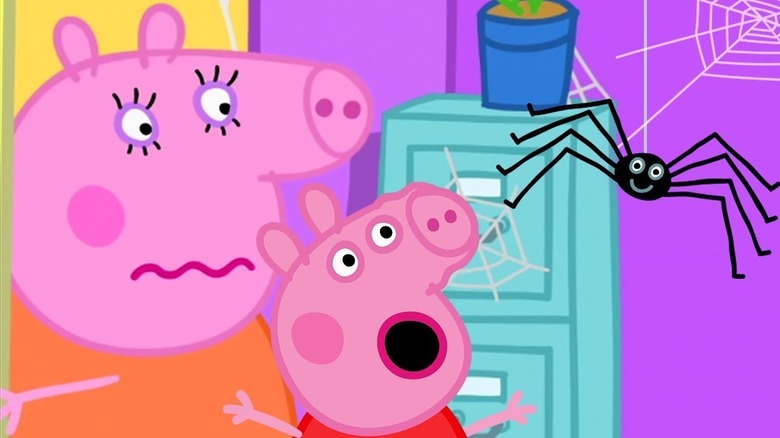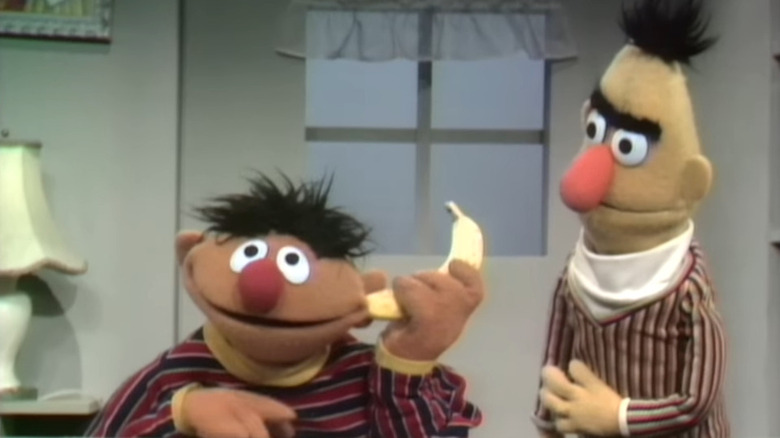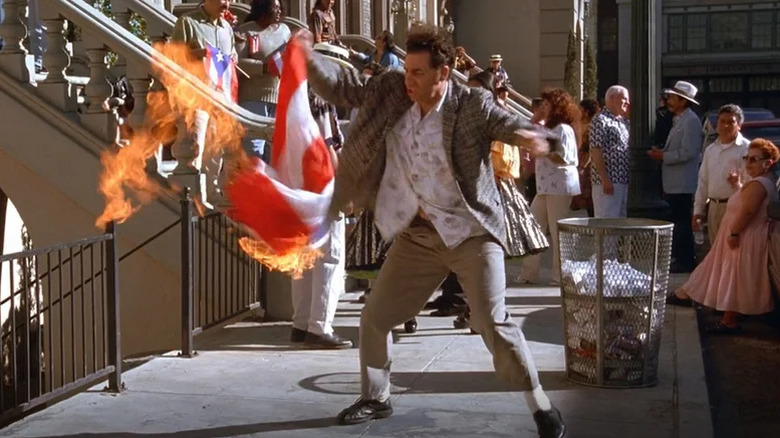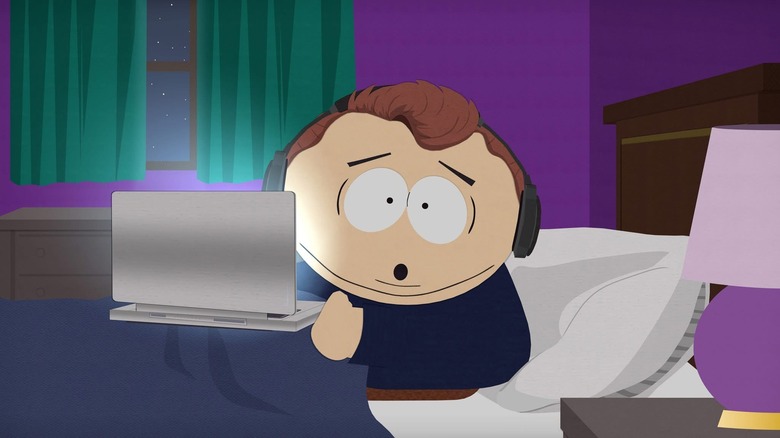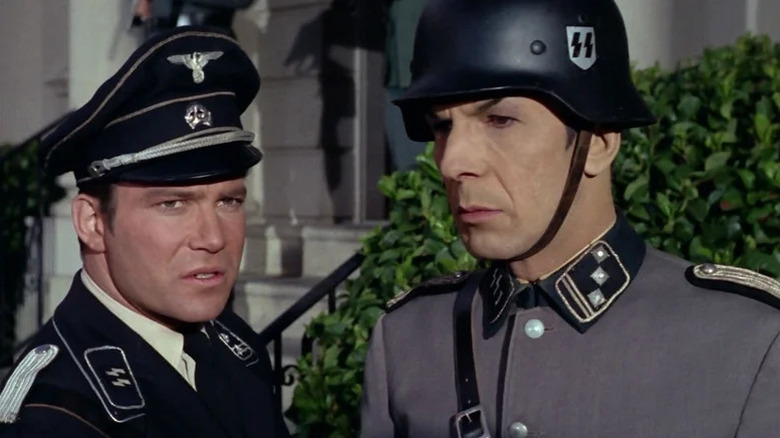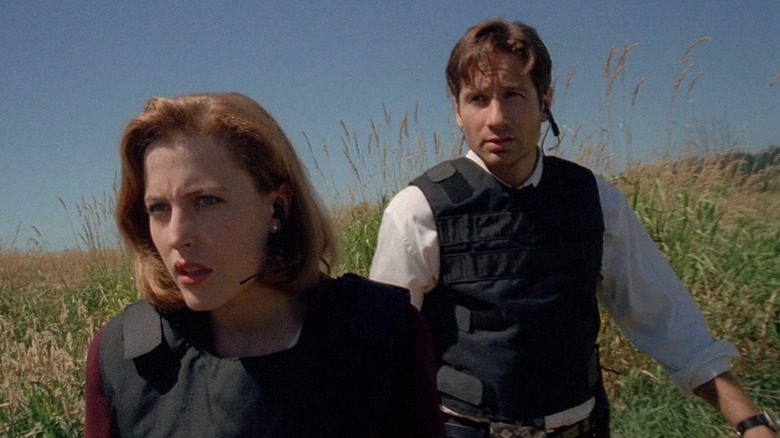10 TV Episodes That Were Banned After Backlash
Although Hollywood has often been home to rebels and rule-breakers, censorship has always been a central aspect of the industry's output. Since its inception, television programming has been overseen by the Federal Communications Commission (FCC), which was originally established to regulate radio broadcasts. In 1978, the U.S. Supreme Court affirmed the FCC's ability to regulate television programs based on standards of indecency, on the grounds that TVs are often central to the home and "uniquely accessible" to children.
The FCC's power waxes and wanes depending on the political administration, and TV networks often take it upon themselves to censor content before it becomes subject to further scrutiny. In addition, local TV stations have the power to regulate what appears on their airwaves, as do other countries broadcasting television from the United States. In other instances, TV networks censor their content due to backlash from viewers, responding to consumer pressure rather than governmental regulation.
Now that we've brushed up on our history, it's time to explore some fascinating examples of TV episodes that were removed from the air following actual or expected controversy.
Bluey: Dad Baby
Beloved by preschoolers everywhere, the Australian children's series "Bluey" doesn't seem like an obvious choice for censorship. On the other hand, folks intent on ferreting out indecency in pop culture have always been most concerned with content aimed at children.
The animated series about a family of dogs is a co-production between Australia and the U.K., but Disney owns the global streaming rights. Though it has now become something of a viral episode due to this censorship, Disney refused to include "Dad Baby" on its streaming platform. In the episode, Bluey's dad, Bandit (voiced by David McCormack), pretends to be pregnant with Bluey's little sister, Bingo, by wearing her in the baby carrier he put her in when she was a puppy. He learns about how difficult pregnancy can be, and the family game concludes when Bandit pretends to give birth to Bingo in a kiddie pool in their yard. Notably, the episode includes a shot of Bingo's head appearing out from under Bandit, and a POV shot from between Bandit's knees.
Disney never explained why it banned the episode, but most have assumed it had something to do with the topic of male pregnancy. "Dad Baby" is a typically sweet, lighthearted episode that in no way endeavors to make a political statement, nor does it meaningfully stand out from other "Bluey" episodes. Thankfully, "Dad Baby" hasn't vanished altogether. It aired in both the U.K. and Australia, is included on "Bluey" DVDs, and now appears in full on the "Bluey" YouTube channel.
Friends: The One with the Lesbian Wedding
Few would describe "Friends" as a paragon of progressive politics, but aspects of it were groundbreaking at the time. Notably, the series featured two lesbian characters: Carol (Jane Sibbett), Ross's (David Schwimmer) ex, and her girlfriend, Susan (Jessica Hecht). Though Carol and Susan are often made the punchline of jokes, their marriage in a 1996 episode, aptly titled "The One with the Lesbian Wedding," marked the first appearance of a lesbian wedding on primetime TV.
Although the episode aired in most parts of the country without incident, a few communities objected to the subject matter. KJAC in Port Arthur, Texas, and WLIO in Lima, Ohio, both refused to air the episode. Defending the decision, Ron Kelly, the station manager of KJAC, explained, "We do not believe the episode of 'Friends' meets the prevailing standards of good taste in our community." GLAAD condemned this censorship, and managing director William Waybourn argued that these bans send "a chilling message to America that there's something wrong with lesbian and gay couples publicly stating their commitments to one another."
While bans in those two cities were meaningful, viewers in those areas represented a very small portion of the nationwide audience. Indeed, according to "Friends" co-creator Marta Kauffman, the backlash was much milder than anticipated; as she told The Hollywood Reporter, NBC "put 104 operators on for fear of getting a million phone calls. They got two."
Mister Rogers' Neighborhood: The Conflict series
Though often considered one of the calmest, most agreeable figures in children's television, Fred Rogers wasn't one to shy away from controversial subjects. For example, in 1968, Rogers hired Black actor François Clemmons as a recurring character on his show. In a later episode, both men put their feet in a pool on a hot day, sharing a clear message about segregation.
But one topic on "Mister Rogers' Neighborhood" proved too much for viewers to handle. In 1983, the show featured a five-episode series, "Mister Rogers Talks About Conflict," teaching children about the threat of nuclear war and how to prepare for a potential nuclear attack. This was a tense time for the United States, as the country was deep into the Cold War against the Soviet Union.
Mister Rogers created a version of this Cold War environment in his Neighborhood of Make-Believe. King Friday, who ruled the town, became worried that a nearby town was building bombs. In response, he ordered the residents of Make-Believe to do the same. In the end, we learned the neighboring kingdom wasn't building bombs at all; they were building a bridge of peace. The message, then, became more about the dangers of paranoia than nuclear annihilation.
Nonetheless, the "Mister Rogers" episodes were removed from syndication, presumably due to their overt political messaging. While two of the episodes were uploaded to YouTube in 2021, in what some believed was a message to the Trump administration, they were taken down several days later.
Peppa Pig: Mister Skinnylegs
A television episode that appears benign in the United States can come across as anything but in other countries, as evidenced by a banned episode of the beloved children's cartoon "Peppa Pig." In a 2002 installment of the British series titled "Mister Skinnylegs," Peppa (voiced by Lily Snowden-Fine) finds a spider in her house and is very scared until she realizes it's friendly and doesn't want to hurt her. After Daddy Pig (Richard Ridings) tells Peppa and her brother that the creature is harmless, they sweetly tuck it into bed and give it a cup of tea.
In 2012, the Australian Broadcasting Corporation (ABC) removed the episode from online circulation and banned future broadcasts, noting that its message about friendly spiders was "inappropriate" for Australian audiences. In 2017, the episode aired on Nick Jr., which is available on the Australian cable streaming platform Foxtel. When a Sydney mother complained, Nick Jr. declined to pull the episode because the animated spider "does not look real" and is "mild in impact," but later agreed to take it down.
While there have been no deaths from spider bites in Australia since 1979, following the introduction of antivenoms, the country is still home to the most venomous spiders in the world, and 666 people were hospitalized due to spider bites from 2017 to 2018.
Pokémon: Electric Soldier Porygon
Banned TV episodes are most often the result of moral, ethical, or political concerns, not the literal physical danger they pose to viewers. But one 1997 episode of "Pokémon" was pulled from circulation for just that reason. In "Dennō Senshi Porygon," known as "Electric Soldier Porygon" in English, Pikachu's thunderbolt, flashing in red and blue, caused epileptic seizures in hundreds of Japanese children. Others reported vomiting and temporary blindness.
Unsurprisingly, TV Tokyo banned the episode from ever airing again. In fact, the "Pokémon" series went off air for four months as Japan's brightest minds attempted to figure out how the episode went so very wrong. When they discovered flashing lights were the culprit, other sequences using similar strobe effects were revised as well.
This incident, known as "Pokémon shock," affected Japanese broadcast regulations and reverberated across the globe. Tokyo TV introduced new guidelines concerning the use of flashing lights, especially flashing red lights. Stateside, the controversy made its way into an episode of "The Simpsons" titled "Thirty Minutes Over Tokyo," in which the entire family has seizures after watching a "Pokémon"-inspired anime. "Electric Soldier Porygon" has never aired in any country since that fateful day in 1997, and that ban isn't likely to be lifted anytime soon.
Sesame Street's ban in Mississippi
Though it's now one of the most universally loved and longest-running television programs ever, "Sesame Street" has radical roots. In the 1960s, little effort was put into children's programming, apart from "Mister Rogers' Neighborhood." While advertisement-laden cartoons aired on weekends, weekdays offered little in the way of thoughtful entertainment. When "Sesame Street" premiered in 1969, it aimed to fill this gap, and its creators wanted to particularly target children from low-income families.
The show's commitment to diversity wasn't met with universal praise. In May 1970, Mississippi's State Commission for Educational Television decided not to air "Sesame Street" on the state's television network. A member of the commission told The New York Times that "[s]ome of the members of the commission were very much opposed to showing the series because it uses a highly integrated cast of children." When Shreveport's KTAL took "Sesame Street" out of the rotation in its second season, some viewers suspected the real reason for its removal also fell along racial lines.
Mississippi's ban didn't last for long. Its ETV station was inundated with letters from TV viewers who disagreed with the ban. In Laurel, Mississippi, the local station condemned the ban and claimed it would air "Sesame Street" itself if the decision wasn't reversed. The commission quickly caved under pressure, agreeing to lift the ban later in May and officially airing episodes in June of that year.
Seinfeld: The Puerto Rican Day
In May 1998, NBC aired the two-part finale of one of its most beloved and critically acclaimed shows: "Seinfeld." The episode was watched by 76 million people, though it's now considered one of the worst TV finales ever. (We ranked it as the sixth worst.) Not long before that, fans got to watch Season 9, Episode 20, "The Puerto Rican Day," which didn't fare much better and is among the most controversial episodes of the series.
"The Puerto Rican Day" follows the gang as they attempt to beat traffic from a New York Mets game, but ultimately get blocked on the way home by a Puerto Rican Day parade. At one point, Kramer (Michael Richards) throws a sparkler and accidentally lights a Puerto Rican flag on fire, attempting to put out the fire by stomping on it. A mob of angry Puerto Ricans begins chasing Kramer, eventually pushing Jerry's (Jerry Seinfeld) empty car down a stairwell. ”It's like this every day in Puerto Rico," Kramer remarks.
The episode sparked criticism before it even aired. Manuel Mirabal, the president of the National Puerto Rican Coalition, was concerned when he heard the name of the episode and urged NBC to hire consultants to weed out any offensive content. After it aired in May 1998, the controversy heated up. Mirabal called the episode an ”unconscionable insult," while Puerto Rican Bronx Borough President Fernando Ferrer argued it ”crossed the line between humor and bigotry." NBC apologized and pulled the episode from syndication (but never conceded that it's offensive), though it's now available to stream on Netflix.
South Park: Got a Nut
South Park has faced several censorship issues over the course of its 28-season run, but few have been as politically explosive as a recent controversy involving Charlie Kirk. After the conservative commentator was shot and killed in September 2025, Comedy Central canceled a rerun of Season 27, Episode 2, "Got a Nut," which poked fun at Kirk. The episode sees Eric Cartman becoming a right-wing podcaster clearly modeled after Kirk. During one scene, Cartman and fellow fourth-grader Clyde (both voiced by Trey Parker) are in contention for an award called "The Charlie Kirk Award for Young Masterdebaters," which Clyde wins, much to Cartman's chagrin.
The episode was scheduled to re-air the same evening Kirk was killed, but Comedy Central pulled it from rotation and intends to keep it off the air for the foreseeable future. (The episode is still available to watch on Paramount+, however.)
In the wake of Kirk's assassination, several of his fans argued that "South Park" was responsible for the antagonistic rhetoric that supposedly led to his death. Ironically, Kirk, an avid supporter of free speech, counted himself as a fan of the show, his podcast producer claimed. In an X post directed at Paramount+, Andrew Colvet wrote that "Charlie loved that he was featured in South Park. He told me many times. He would want the episode back up."
Debates about the series continued to rage on when an episode scheduled to air on September 17 was pushed to September 24, with some fans worrying that "South Park" creators Parker and Matt Stone were being censored by the network. Stone quickly put those rumors to rest, explaining that "South Park" Season 27, Episode 5 was pushed back because they hadn't completed it in time.
Star Trek: Patterns Of Force
In 1968, TV viewers were given the gift of a "Star Trek" episode entitled "Patterns of Force," which follows Nazis on an alien planet. Kirk (William Shatner) and Spock (Leonard Nimoy) travel to the planet Ekos, where they discover Kirk's former history professor, John Gill (David Brian), taught the Ekosians about Nazi Germany because he thought the regime was the most efficient form of government. Now, the Ekosians have become full-on Nazis, wearing Nazi uniforms and plotting to destroy a neighboring planet. Kirk and Spock link up with a resistance group and figure out how to contact Gill to learn what happened.
Though presumably intended to be critical of Nazism, the episode's handling of the topic led to the "Star Trek" episode getting banned in Germany. The country outlawed displays of Nazi imagery and rhetoric following World War II, unless reproduced in an artistic or educational context. While the "Star Trek" episode could have been allowable based on that exception, Gill's explicit praise of the Nazis' efficiency firmly placed it in the "against the law" category. Thus, "Patterns of Force" was banned for many decades, and only aired on a German public broadcast for the first time in 2011.
"Patterns of Force" isn't the only "Star Trek" episode that has ignited political uproar. In a controversial episode of "The Next Generation," the crew offers their services to victims of a terrorist bombing. In one scene, Data (Brent Spiner) discusses the history of terrorism, listing examples of instances when terrorism succeeded, such as the "Irish Unification of 2024." Because of this explicit reference to The Troubles, the episode was banned in the U.K. and the Republic of Ireland for almost 20 years.
The X-Files: Home
The famously banned episode of "The X-Files" wasn't taken off air because of any social or political controversy, but for a far simpler reason: it was too darn scary. In October 1996, Fox aired an episode called "Home." In it, Mulder (David Duchovny) and Scully (Gillian Anderson) travel to a rural town where a grotesquely inbred family known as the Peacocks is wreaking havoc on the locals. In the episode's shocking opening scene, the monstrous Peacocks deliver a deformed baby and subsequently bury it in a would-be baseball field. Local law enforcement brings Mulder and Scully in after discovering the dead baby.
The episode was so disturbing that Fox banned it from re-airing for three years. Co-writer James Wong received feedback from the executives after they saw the episode. "I remember getting a call from a producer. He goes, 'You guys are sick!'" Wong told The New York Times. Wong's writing partner, Glen Morgan, revealed that when he and Wong were working on "X-Files" creator Chris Carter's new show, "Millennium," they intended to do a follow-up episode about the Peacocks. Fox nixed the idea, telling Wong and Morgan, "Those characters never appear on television again."
Though executives were clearly horrified by the episode, its contentious nature served as a marketing boon in later years. When "Home" finally aired again in October 1999, the TV Guide ad read: "Only on Halloween ... would we dare air an episode so controversial." When it aired the second time around, it became the first and last "X-Files" episode to carry a TV-MA rating.

